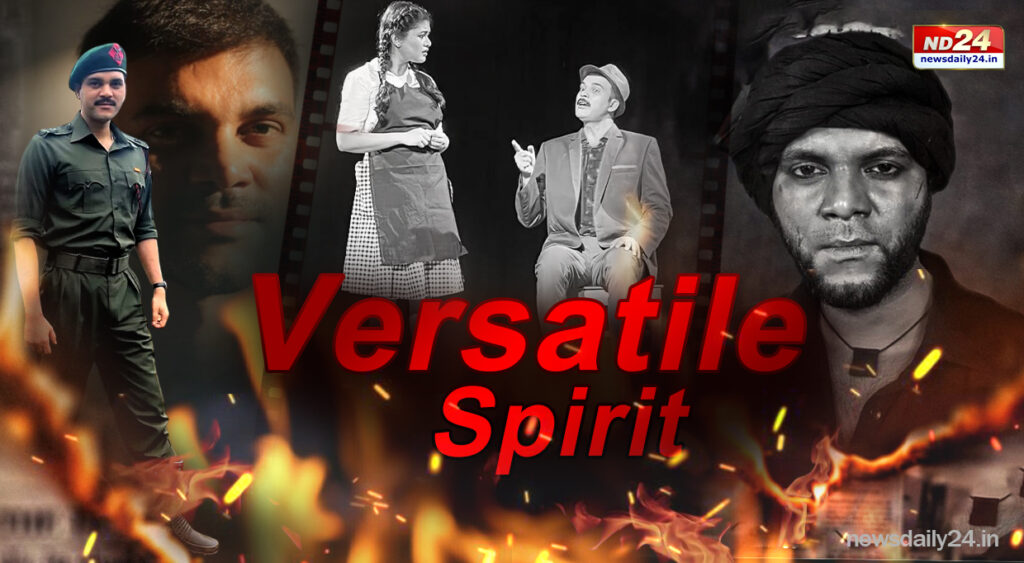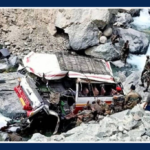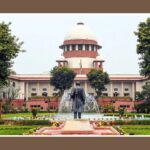From the modest theatre halls of Guwahati to the national stage, Monuj Borkotoky has steadily emerged as one of Assamese cinema’s most versatile voices. With a Master’s degree in Mass Communication and Journalism shaping his storytelling instincts, he began his filmmaking journey with eMOSS (2011), a short film that travelled to festivals and won Best Film at the Pirocanasis 35mm Film Festival and a Jury Special Mention at the Puri International Film Festival. This early acclaim marked a turning point, setting the foundation for a filmmaker defined by empathy, social awareness, and quiet brilliance.
As a director, Monuj continued to refine his craft through works such as Manan (Best Film & Director, Jyoti Cine Short Film Festival), AaoKheleinSafaiSafai (under the Swachh Bharat campaign), and Daai (Uncle), each resonating with layered storytelling. Alongside his directorial journey, he built a strong presence on screen with acclaimed performances in Ishu, The Head Hunter, Seema: The Untold Story, and KokaideuBindaas, while also taking on roles in Gulabi, Netflix’s Sacred Games, and Meghna Gulzar’s Sam Bahadur.
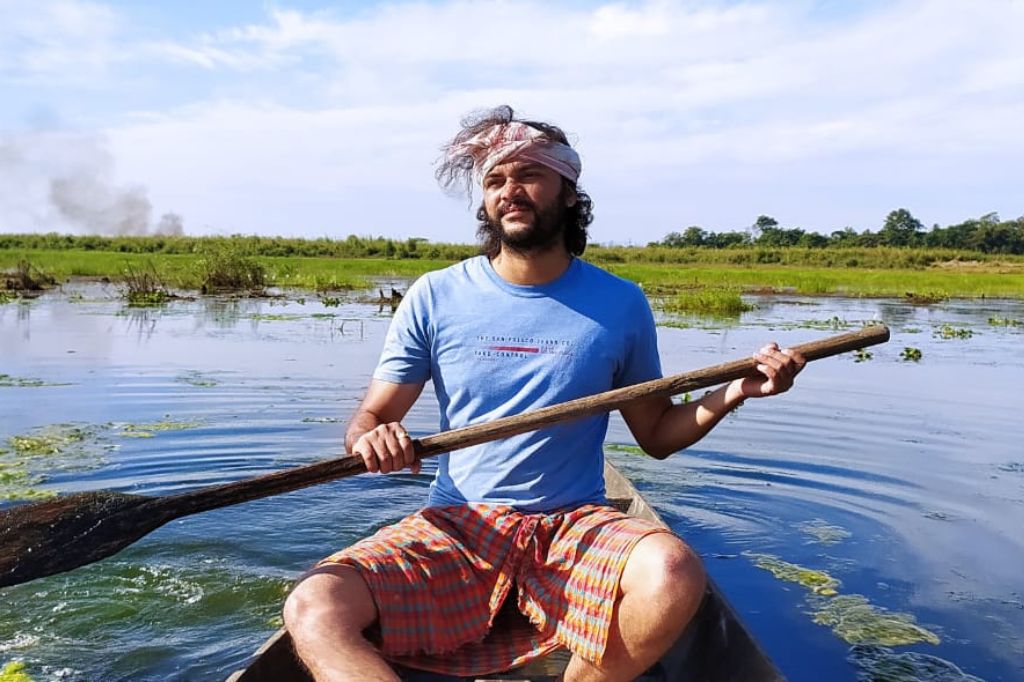
Most recently, his portrayal of Bimal in Baghjan—a man navigating grief and resilience after the devastating Assam oil-field fire—was praised for its raw authenticity. Whether behind the camera or in front of it, Monuj’s work reflects sincerity, persistence, and emotional depth, positioning him as a multifaceted figure in Assamese cinema whose artistry bridges the personal and political, the local and universal.
In conversation, he emphasizes that creativity, passion, and persistence remain the true keys to lasting success.
Q. What first sparked your interest in acting, and how did your journey start in Assam?
A. My journey began in Class V, when I watched my father, Devi Borkotoky, perform the lead role in the play BoliyaHati. The energy and emotions on stage left a lasting impact on me. I truly began pursuing acting during my college years in Guwahati, performing with theatre groups—an experience that laid the foundation for my lifelong passion.
Q. You have a strong background in theatre. How has that training influenced your work in films and OTT projects?
A. Theatre gave me a strong foundation in performance, discipline, and above all, authenticity. It taught me the importance of being fully present in every moment and to approach the craft with deep respect. My time on stage also allowed me to explore emotional depth and develop a nuanced understanding of relationships and storytelling. These lessons naturally extend into my work in films and OTT projects, where I strive to bring honesty and sensitivity to every role. For me, it’s been a continuous journey of learning—both as an actor and as a human being.
Q. How did the role in Sam Bahadur come your way, and what convinced you to take it on?
A. I auditioned for the part and was approached by casting directors Nandini Srikant and Karan Mally. In the film, I play an Army Major in the chapter that focuses on the Mizo National Front uprising of 1966. The chance to don the Army uniform was an honour in itself, but what truly made the role meaningful was its personal connection—I have two uncles who served in the Indian Army. That emotional resonance convinced me to take it on wholeheartedly.
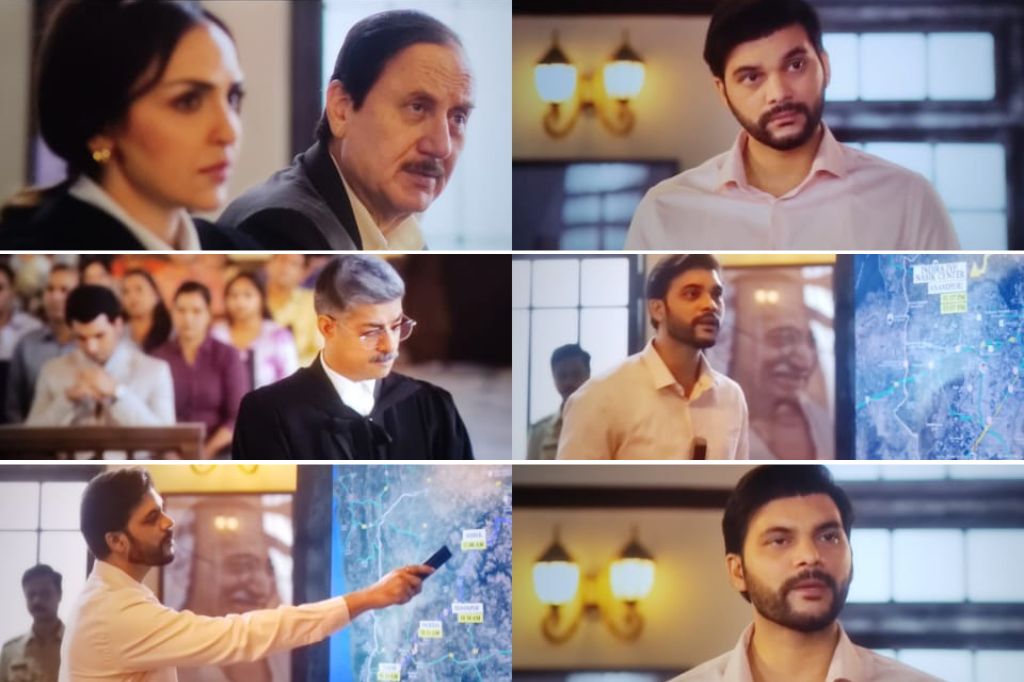
Q. What was the most memorable moment for you while working alongside Vicky Kaushal on set?
A. The most memorable moment for me was watching Vicky’s complete immersion into the character of Sam Manekshaw. Even in the cold, rainy conditions of Ooty, he remained on set until every scene was perfectly captured, never once excusing himself. His commitment, discipline, and respect were truly inspiring, and it was an absolute privilege to share the screen with him.”
Q. How do you carry your Assamese roots into the characters you play on screen?
A. My Assamese roots are an integral part of who I am, and they naturally flow into every character I play—whether in Assamese cinema or beyond. The cultural sensibilities, emotional depth, and nuanced understanding of relationships that I’ve inherited from my upbringing deeply inform my choices as an actor. There’s a certain honesty and groundedness that comes from being rooted in my heritage, and I carry that quiet yet constant influence into all my roles.
Q. Apart from Sam Bahadur, which roles in your career hold a special place in your heart and why?
A. Apart from Sam Bahadur, it’s difficult to pick just one role, because every character I’ve portrayed has shaped me in some way as an actor. Each project—big or small—has been a stepping stone, offering new lessons and perspectives. What I cherish most is the journey of discovering a character, understanding their emotions, and breathing life into them on screen or stage. That process has always been deeply fulfilling for me.
Q. Do you feel the Northeast is now getting more authentic representation in mainstream cinema and streaming platforms?
A. Yes, the Northeast is increasingly finding space in mainstream cinema and OTT platforms, but the process remains gradual. What we need now are authentic, nuanced stories—not tokenistic representation. True representation can only come when local storytellers, writers, and actors are involved at every level, bringing the depth and cultural insight that outsiders often miss. Only then will the Northeast be portrayed in its full richness.
Q. What has been the most difficult hurdle in your acting career so far, and how did you overcome it?
A. Every artist faces challenges; it’s part of the journey. For me, the most difficult hurdle has been finding the balance between staying true to my roots while also embracing opportunities from different parts of the world. I don’t want to glorify my struggles because every artist has their own grind, but what has helped me overcome mine is persistence and passion. No matter the hurdles, making space to pursue what you love is what keeps you moving forward.
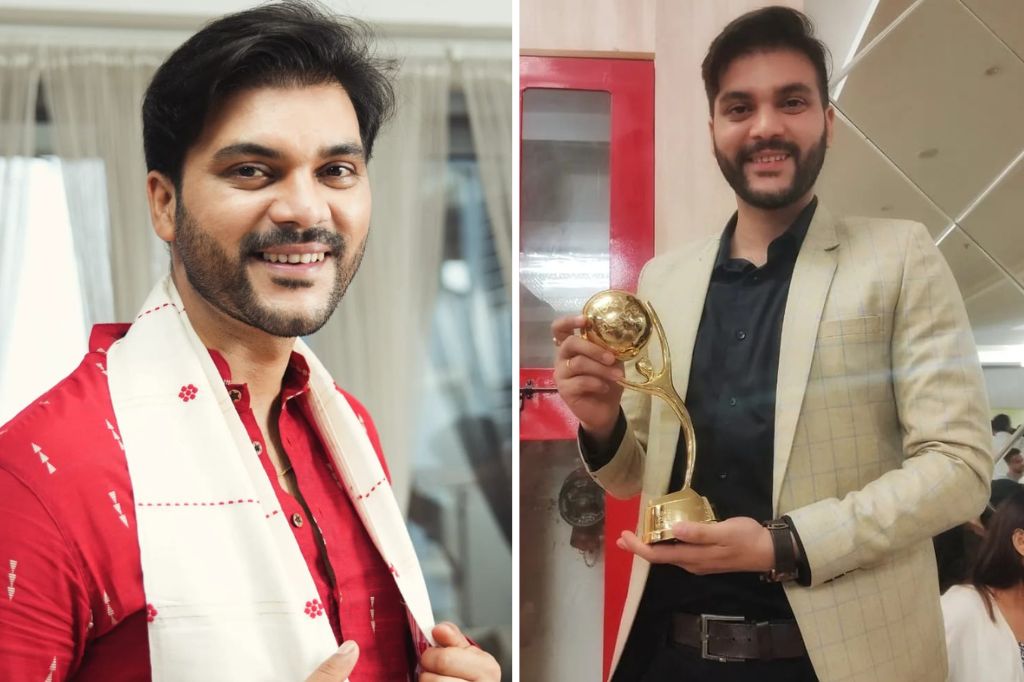
Q. Who have been the most influential people in shaping your craft, and what did you learn from them?
A. Apart from my father, who has been a profound influence, I’ve drawn inspiration from many remarkable individuals and mentors. Figures like DrBhabendra Nath Saikia, Jyoti Prasad Agarwala, Dr Kartik Borthakur, Irrfan Khan, Dilip Kumar, RitwikGhatak, Daniel Day-Lewis, among others, have deeply shaped my understanding of the craft. Equally important are the mentors I’ve encountered through theatre and independent cinema, who have instilled in me the true essence of being an artist—teaching me to remain honest, vulnerable, and open to growth.
Q. If you could play any historical, fictional, or literary character, who would it be and why?
A. If I had the opportunity to play any historical, fictional, or literary character, I would choose Mahapurush Srimanta Sankardeva. He was a true visionary whose contributions to Assamese culture, literature, and spirituality are immeasurable. Sankardeva not only shaped the spiritual and cultural identity of Assam but also created a legacy that continues to inspire generations. As an Assamese, I take immense pride in his work and the values he instilled in society. Portraying him on screen would be an honour, as it would allow me to bring alive the story of a man who defined the essence of our heritage and helped us stand tall as a community.
Q. If you had the chance to perform or collaborate internationally, where would you most want to work and in what kind of project?
A. I would be especially drawn to working in Iranian cinema as well as in cross-cultural, Indo-Indigenous projects that bring together diverse traditions and storytelling methods. I find great inspiration in collaborations that highlight cultural exchange and innovation. On a more personal note, performing on Broadway would be a dream come true—the chance to contribute to a global stage that celebrates both tradition and forward-thinking theatre excites me deeply.
Q. What message would you give to young aspiring actors from Assam and the Northeast who want to make it in cinema?
A. Acting is a lifelong journey, and the most powerful tool you have is your authenticity. Stay grounded in your roots, commit yourself to constant learning and practice, and trust the uniqueness of your voice. Remember, there is only one you—and that truth is what will always make you stand out.”
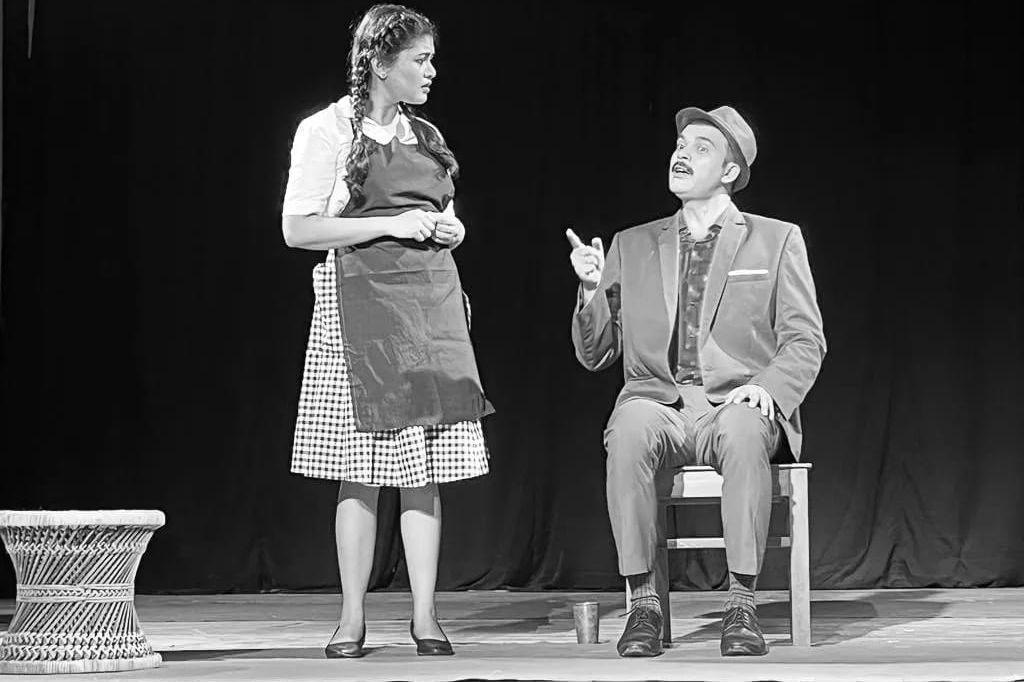
Q. Looking back at your journey so far, could you share some of your past projects that shaped you as an artist, and tell us about what you’re currently working on?
A. Every project I’ve taken on—whether for stage or screen—has shaped me in some way, so it’s hard to single out just one. At the moment, I’m working on my directorial debut, My Dad’s Home, which is now in post-production. I’ve also recently completed shooting for an Assamese film titled BhakootKoot, along with two vertical shows under Vikram Bhatt’s production house—Qaid and another project that’s yet to be announced. It’s a truly exciting phase, and I’m eager to see what lies ahead.”
Q. When you’re not immersed in work, what are some activities or hobbies that truly make you happy?
A. When I’m not working, I try to embrace life with the same enthusiasm I bring to my art. Cooking is one of my greatest joys—I love experimenting in the kitchen and creating meals that bring people together. I’m also deeply involved in volunteer work, especially at hospitals in Mumbai like Tata Memorial, which keeps me grounded and connected. And sports have always been a passion—whether I’m playing or simply watching, they’re a wonderful way for me to stay active and refresh my mind.”
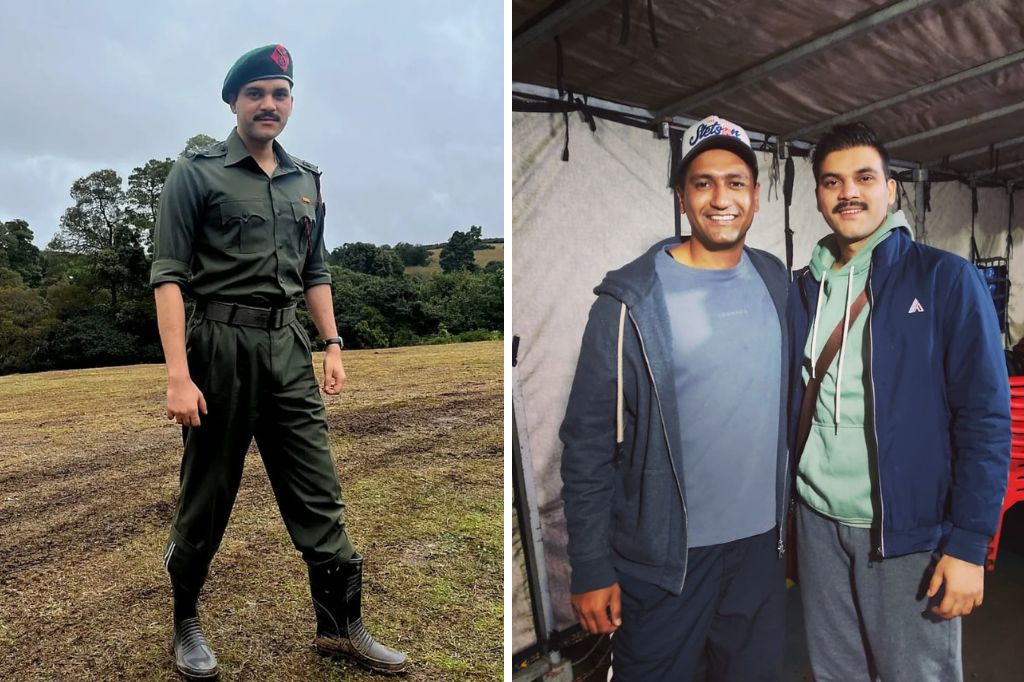
Q. Who are your favourite filmmakers, actors, or films that have inspired your creative vision?
A. I’m deeply inspired by filmmakers who bring regional authenticity to global platforms, weaving truth, culture, and politics into their storytelling. RitwikGhatak remains my all-time favorite, while among contemporary voices, I greatly admire Rima Das, ShoojitSircar, and VikramadityaMotwane. In terms of actors, beyond Irfan, Dilip Kumar, and Daniel Day-Lewis whom I’ve already mentioned, I hold immense respect for Pankaj Kapur, FahadhFaasil, Pawan Malhotra, Shefali Shah, Arun Nath, and Tapan Das. As for films, the list is endless, but a few that immediately come to mind are Sandhyaraag, TitasEkti Nadir Naam, Meghe Dhaka Tara, Dil Chahta Hai, Black Friday, Udaan, and Village Rockstars.

